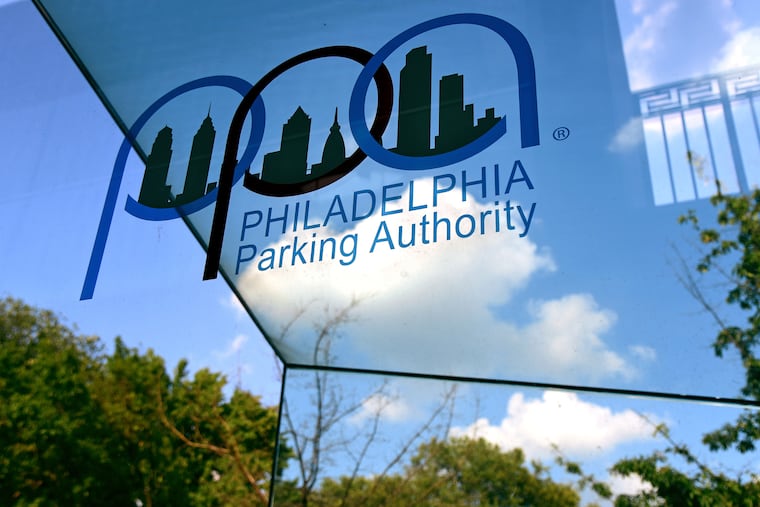PPA tells the cash-strapped Philadelphia school district to pay back $11.3 million
The Philadelphia Parking Authority says it overpaid the district nearly two years ago, but could not provide data to back up the debt.

The Philadelphia Parking Authority says the school district owes it more than $11.3 million in an apparent overpayment dating back two years, citing a series of financial miscalculations.
That amounts to more than a fifth of the $53 million in annual ticket revenue that the PPA has paid to the cash-strapped district since 2015. The annual payouts are part of a profit-sharing agreement born from a 2004 deal that solidified Republican control over the state-run parking authority.
The parking authority says it overpaid the school district in the 2020 fiscal year. The $11.3 million makes up the bulk of the PPA’s $14.7 million payment to the district that year, according to budget documents.
According to emails obtained by The Inquirer, the parking authority cited financial oversights involving long-term pension and post-employment benefit debts, but the authority could not provide data to support its position that those obligations had an effect on the authority’s financial commitment to the district.
“The authority does not have any supporting documentation to provide,” PPA chief financial officer Belinda Smith wrote in November in response to the district’s questions about the newly identified debt.
The amount may be small in relation to the district’s $3 billion annual operating budget, but Uri Monson, the district’s chief financial officer, said the funds have become a reliable revenue stream.
“It’s more than 100 teachers,” Monson said.
This is not the first clash over the authority’s financial duty to city schools. In recent years, the PPA has ramped up on-street parking fees and enforcement in the name of providing more financial relief to the district, and taken heat when the money didn’t materialize in district coffers, with escalating calls from advocates for the PPA to pay up.
In a statement, PPA executive director Scott Petri said outside auditors found that the pension expenses and other costs should have decreased the authority’s 2020 disbursement.
“The city and the school district were fully advised of the outside auditor’s determination,” Petri said. “Consequently, the PPA initiated a discussion and will continue that dialogue to address the $11.3 million overpayment.”
City Councilmember Helen Gym, a longtime critic of the PPA’s, shared the emails with The Inquirer to shed light on what she describes as a recurring dereliction of duty by the parking authority. Gym plans to hold a news conference Monday to call for the authority to cancel the $11.3 million repayment demand and urge for more financial oversight of the agency.
“This is the latest in a string of outrageous financial failures by an entity that simply refuses to act as a public trust,” Gym said. “There is no way in the world that a single dollar of public money goes to the PPA ahead of schoolchildren in our city.”
The PPA’s profit-sharing agreement involves a complex formula codified in state legislation. The authority has to give the majority of on-street parking revenue to the city each year. Whatever is left over goes to the district.
Since the inception of the agreement, annual payments grew from $2.2 million in 2007 to more than $15 million in 2018, according to district budget documents.
But the profit share came to a grinding halt when the pandemic hit.
In the fiscal year 2021, the authority contributed no money to the district for the first time after COVID-19 lockdowns eviscerated on-street ticket revenues. Payments to the district have since resumed at a dramatically lower level, but the debt in question dates from before the pandemic.
The authority’s analysis cited “over accrual” of $2.4 million that year, as well as an additional $8.9 million for previously unforeseen debts for PPA workforce pensions and other post-employment benefits, according to emails.
Monson said the pension debts should not affect the PPA’s annual revenue-sharing plan, pointing to a section in the 2004 agreement that stipulates annual revenues “shall not be subject to any debt or obligation of the authority.”
PPA spokesperson Martin O’Rourke said the law Monson referenced had no effect on the calculations because it expired in 2014.
Monson said small adjustments to the PPA’s annual payment to the district were routine, but that he had never seen a discrepancy of this magnitude. He said it was unusual for the authority to claim a debt from two earlier fiscal years, and questioned the impact the authority’s claim would have on past and future payments.
As it stands, the authority has included the debt in its budget, and the district either has to repay the money or it will be deducted from the PPA’s future payments, Monson said. He added that the district would be disputing the claim.